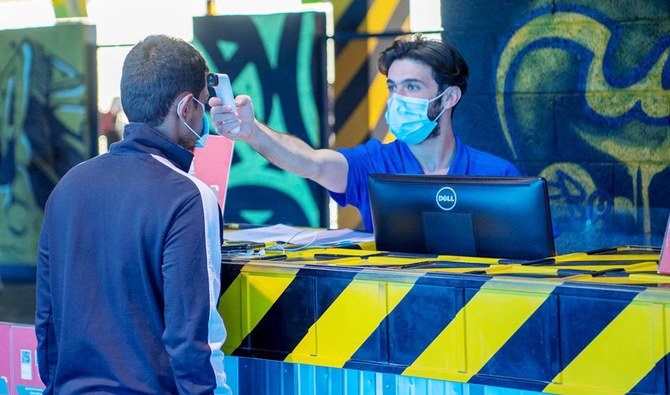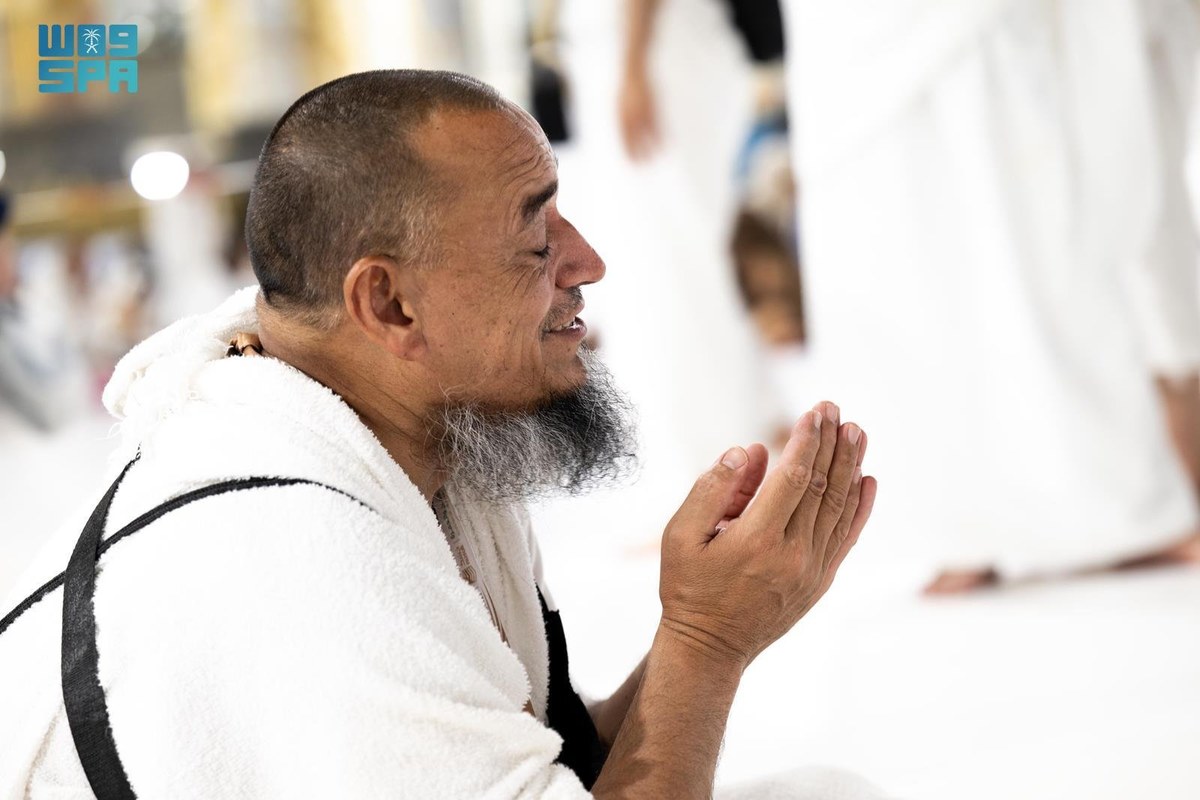JEDDAH: Saudi Arabia’s Ministry of Health has recommended measures to tourists and travelers to prevent them from contracting or spreading coronavirus.
The measures are to be taken while traveling, in residence, in open recreational areas such as beaches and parks, in closed entertainment places, while out shopping, and in restaurants and cinemas. There are also measures to be taken while in children’s company.
The ministry published an infographic on its Twitter account and its educational platform, Live Well, telling people to respect social distancing and call the free toll number 937 when coming into contact with people who might be infected and showing symptoms such as coughing, fever or shortness of breath.
It called on everyone to wear face masks in public, wash their hands or sanitize them for 20 seconds.
It also warned against sharing utensils with others, shaking hands, hugs, or touching the eyes or nose. It advised people to cough or sneeze into their elbow, or cover their mouth and nose with a handkerchief and dispose of it immediately afterwards. The ministry also stressed on keeping a safe distance of no less than two meters.
Anyone with symptoms is advised to use the Mawid app for self-evaluation, visit one of the 237 clinics specialized in dealing with COVID-19 infection cases, or message the WhatsApp number 920005937 for health information and services. They can also get updates on developments related to the pandemic,
primary care centers, blood donation centers, and ways to set appointments.
FASTFACT
The ministry published an infographic on its Twitter account and its educational platform, Live Well, telling people to respect social distancing and call the free toll number 937 when coming into contact with people who might be infected and showing symptoms.
With the majority of lockdown restrictions now lifted in Saudi Arabia the Jeddah Municipality carried out inspection tours of women’s beauty salons and hairdressers to ensure the implementation of precautionary measures to fight the spread of COVID-19.
Mohammed bin Ibrahim Al-Zahrani, deputy mayor of Jeddah’s sub-municipalities, said that 185 inspection tours had been carried out since women’s salons had reopened and that 17 centers were penalized for not following the measures.
A number of closed stores have undergone the necessary procedures in preparation for reopening.
After months of lockdown and curfews across the Kingdom, Jeddah’s waterfront started receiving visitors again. Protocols and precautionary measures have been put in place to limit the spread of the virus.
Saudis and expats were happy to return to the city’s famous corniche, enjoying its services, open spaces, walkways and restaurants, amid a heavy presence of security staff to organize the traffic.
Many visitors chose to spend their time at the waterfront walking or riding their bikes. Children were able to enjoy the games and attractions that the municipality had sterilized and disinfected for their protection.
The levels of visitors’ social awareness and responsibility was reflected in their commitment to social distancing.
Restaurants along the corniche have also been abiding by preventive protocols and serving people in line with health measures to ensure everyone’s safety.
The Kingdom recorded 48 new COVID-19-related deaths on Monday, raising the total to 1,599.
There were 3,943 new cases reported in Saudi Arabia, meaning 186,436 people have now contracted the disease. There are 57,719 active cases, and 2,285 of them are in a critical condition.
According to the Ministry of Health, 433 of the newly recorded cases were in Al-Hafouf, while Riyadh reported 363, and there were 357 in Dammam.
In addition, 2,363 more patients have recovered from COVID-19, taking the total number of recoveries to 127,118.
Saudi Arabia has so far conducted 1,591,141 tests for COVID-19.




























